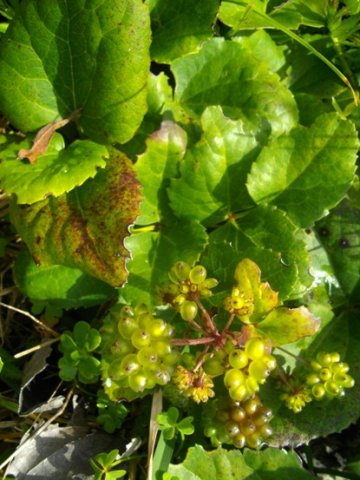Anemone vesicatoria green fruit

Author: Ivan Lätti
Photographer: Thabo Maphisa
These clusters of globular fruits of Knowltonia vesicatoria, now known as Anemone vesicatoria, are segmented and hairless. Their translucence when green renders also the young, fleshy fruits attractive, similar to the red and black ones to follow. The last of the flowers are on their way out in the picture, being replaced by tiny fruits. Flowers and fruits are produced at the level of, or just above the leaves.
One common name for this plant, the Afrikaans tandpynblare (toothache leaves) relates to a past practice of placing a piece of the plant’s root in the cavity of an aching tooth. If it made the agony abate, there was still the risk that the plant may be poisonous!
The other common name of this plant, blisterleaf, may also cause eyebrows to raise at a traditional medicine belief: The burning sensation and blisters caused by the A. vesicatoria leaves from skin contact were thought to suggest promise for alleviating arthritis and rheumatism.
Severe pain may thus warrant the choice of a new form of agony, novelty preferred over the mundane by applying blisterleaf to the old aches. Maybe the pain analogy linking the plant to medicine did serve to uncover the presence of a healing agent in the leaves (Bean and Johns, 2005; iSpot; www.plantzafrica.com).

